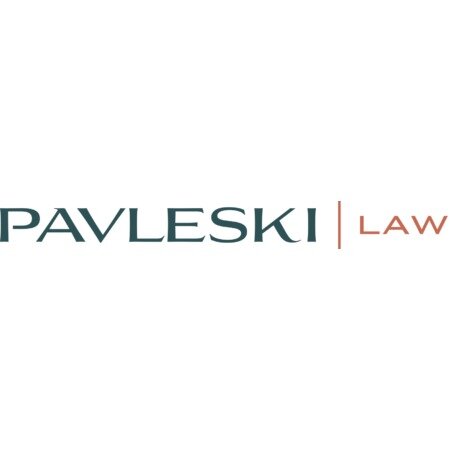Best Collaborative Law Lawyers in Serbia
Share your needs with us, get contacted by law firms.
Free. Takes 2 min.
Free Guide to Hiring a Family Lawyer
Or refine your search by selecting a city:
List of the best lawyers in Serbia
About Collaborative Law in Serbia
Collaborative Law is an alternative dispute resolution method aimed at facilitating amicable settlements outside the courtroom. In Serbia, this approach has been gradually gaining recognition, aligning with global trends that favor out-of-court solutions to disputes, primarily in family law, such as divorces and custody arrangements. Collaborative Law in Serbia encourages transparency and open communication, enabling parties to settle disputes amicably and efficiently, and often results in more satisfactory outcomes for all involved parties.
Why You May Need a Lawyer
Engaging a lawyer for Collaborative Law proceedings in Serbia can be beneficial in various scenarios:
- Divorce and Separation: The collaborative process can assist in negotiating terms that are agreeable to both parties without contentious court battles.
- Child Custody and Support: Lawyers can help mediate discussions to prioritize the welfare of children involved, leading to comprehensive and adaptable custody arrangements.
- Property Division: Legal professionals can aid in the fair division of marital property by facilitating transparent negotiations.
- Dispute Resolution: For commercial and other civil disputes, Collaborative Law offers a path to resolve complications while preserving business relationships.
Local Laws Overview
Serbia has been steadily integrating Collaborative Law principles into its legal system, inspired by models from countries like the United States and Canada. Key aspects include:
- Mediation before Litigation: Serbian law encourages mediation as a preliminary step before resorting to court litigation.
- Family Law Emphasis: Special emphasis is placed on Collaborative Law within the realms of family law, where the stress on privacy and mutual respect is paramount.
- Formal Agreements: Agreements reached through Collaborative Law are legally binding and enforceable, provided they meet legal standards.
- Professional Training: Lawyers involved must be trained in collaborative practices, ensuring they possess the necessary skills for effective mediation and negotiation.
Frequently Asked Questions
How does Collaborative Law differ from traditional litigation in Serbia?
Collaborative Law focuses on mutual agreement and avoiding courtroom confrontation. It involves negotiation with an emphasis on cooperation, unlike traditional litigation, which is adversarial.
Is Collaborative Law legally binding in Serbia?
Yes, agreements made through Collaborative Law are legally binding if they meet all legal standards and formalities.
What types of disputes are suitable for Collaborative Law?
Collaborative Law is suitable for family law issues, small business disputes, employment disagreements, and any other matter where parties wish to avoid litigation.
Can Collaborative Law be used for international disputes?
Yes, Collaborative Law can be adapted for international disputes, especially with the involvement of lawyers who understand cross-border legal issues.
What happens if the Collaborative Law process fails?
If the process fails, parties may revert to traditional litigation. However, collaborative attorneys will not represent them in court proceedings, prompting a new legal start.
What is the role of a lawyer in Collaborative Law?
Lawyers facilitate discussions, ensure legal standards are met, and help clients understand the implications of agreements, focusing on achieving amicable solutions.
Are lawyers in Serbia trained for Collaborative Law?
Lawyers who practice Collaborative Law in Serbia receive specialized training to equip them with negotiation and mediation skills.
Is Collaborative Law cost-effective?
Collaborative Law can be more cost-effective than litigation, as it often results in faster resolutions and less time spent in court.
What is the average duration of a Collaborative Law process?
The duration varies depending on case complexity, but it typically lasts significantly less time than traditional court proceedings.
Is confidentiality maintained in Collaborative Law proceedings?
Yes, confidentiality is a cornerstone of the process, protecting all parties' privacy from public disclosure.
Additional Resources
For those seeking more information or assistance, the following resources can be helpful:
- Serbian Bar Association: Offers access to qualified lawyers trained in Collaborative Law.
- Mediation and Arbitration Center: Provides resources and support for alternative dispute resolution methods.
- Family Courts: Local family courts can offer guidance on available collaborative and mediation services.
- Legal Education Programs: Universities and legal institutions that offer courses on Collaborative Law practices.
Next Steps
If you require legal assistance within the field of Collaborative Law in Serbia, consider the following steps:
- Consult a Specialist: Locate a lawyer who specializes in Collaborative Law to discuss your specific situation.
- Prepare Documentation: Gather all relevant documents and information to facilitate a smoother negotiation process.
- Set Clear Objectives: Define what you aim to achieve through the Collaborative Law process with your legal advisor.
- Engage in Open Communication: Foster an environment of transparency and cooperation with the other party involved in the dispute.
Lawzana helps you find the best lawyers and law firms in Serbia through a curated and pre-screened list of qualified legal professionals. Our platform offers rankings and detailed profiles of attorneys and law firms, allowing you to compare based on practice areas, including Collaborative Law, experience, and client feedback.
Each profile includes a description of the firm's areas of practice, client reviews, team members and partners, year of establishment, spoken languages, office locations, contact information, social media presence, and any published articles or resources. Most firms on our platform speak English and are experienced in both local and international legal matters.
Get a quote from top-rated law firms in Serbia — quickly, securely, and without unnecessary hassle.
Disclaimer:
The information provided on this page is for general informational purposes only and does not constitute legal advice. While we strive to ensure the accuracy and relevance of the content, legal information may change over time, and interpretations of the law can vary. You should always consult with a qualified legal professional for advice specific to your situation.
We disclaim all liability for actions taken or not taken based on the content of this page. If you believe any information is incorrect or outdated, please contact us, and we will review and update it where appropriate.
Browse collaborative law law firms by city in Serbia
Refine your search by selecting a city.









